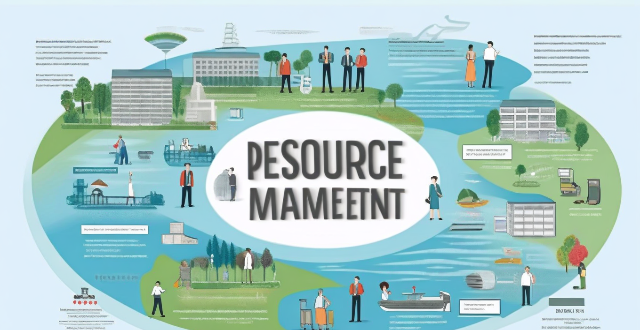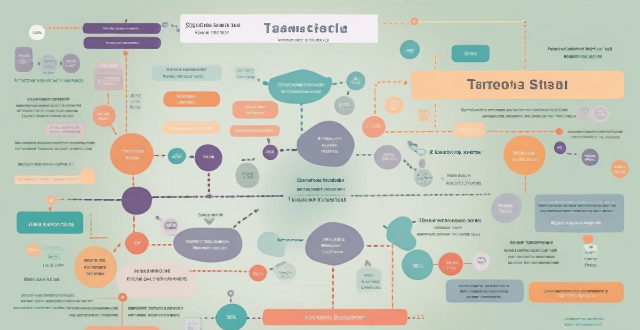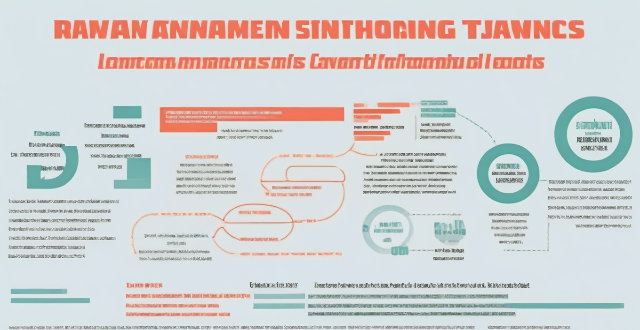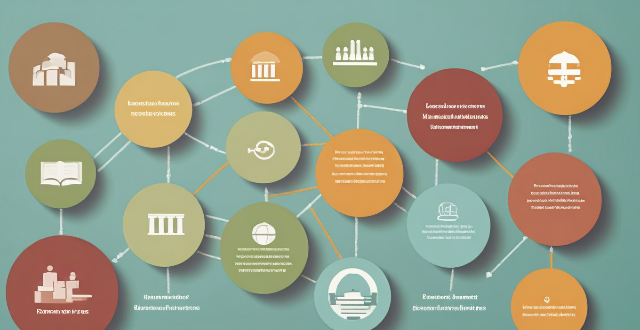Resource Legal

What are the legal and policy frameworks for water resource management at the national and international levels ?
Water resource management is a critical issue that affects the sustainability of ecosystems, the economy, and human well-being. To address this challenge, various legal and policy frameworks have been established at both national and international levels. At the national level, water resource management is governed by a combination of laws, regulations, and policies aimed at ensuring equitable access to water resources, protecting the environment, and promoting sustainable development. International legal and policy frameworks play a crucial role in addressing transboundary water issues and promoting global cooperation on water resource management. Effective water resource management requires a comprehensive approach that encompasses both national and international legal and policy frameworks.

What are the legal frameworks and policies supporting the establishment of ecological protection areas ?
The establishment of ecological protection areas is supported by various legal frameworks and policies that aim to conserve biodiversity, protect ecosystems, and promote sustainable development. These frameworks and policies are essential for ensuring the effective management and protection of ecological protection areas. Some key legal frameworks and policies supporting the establishment of ecological protection areas include international legal frameworks such as the Convention on Biological Diversity (CBD) and the United Nations Convention to Combat Desertification (UNCCD), national legal frameworks such as National Biodiversity Strategies and Action Plans (NBSAPs) and national environmental policies, regional legal frameworks such as regional conservation agreements, and sector-specific legal frameworks such as forestry laws and regulations and wildlife conservation laws and regulations. When establishing ecological protection areas, it is essential to follow best practices such as conducting thorough scientific research, engaging local communities in the planning and management process, developing clear management plans, monitoring ecological protection areas regularly, and promoting sustainable tourism activities within them.

How will a lunar base address issues related to Earth's overpopulation or resource depletion ?
A lunar base could address Earth's overpopulation and resource depletion by reducing population pressure, enabling sustainable resource use, advancing science and technology, and promoting international cooperation.

What are the legal implications of using smart contracts ?
Smart contracts, self-executing contracts with terms written in code on a blockchain, raise legal questions about enforceability, jurisdiction, privacy, security, and regulatory compliance. Best practices include consulting a legal expert, clearly defining terms, considering jurisdiction, and prioritizing privacy and security.

How does resource-efficient utilization contribute to sustainable development ?
Resource-efficient utilization is key to sustainable development, conserving resources, reducing waste, and promoting economic growth. It helps mitigate environmental impact, provides economic benefits, and enhances social well-being. As we face global challenges like climate change and resource scarcity, adopting resource-efficient practices is crucial for a sustainable future.

How can education and awareness programs help in promoting resource-efficient utilization ?
Education and awareness programs are crucial for promoting resource-efficient utilization. These programs can help individuals make informed decisions about their consumption habits and encourage them to adopt more sustainable practices. To maximize the impact of education and awareness programs, it is important to target different audiences, use multiple channels for dissemination, provide practical tips and strategies, and foster a sense of community and collective action towards sustainability goals. By doing so, these programs can contribute significantly to resource efficiency and promote sustainable development.

How does a circular economy contribute to waste reduction and resource conservation ?
The circular economy model promotes waste reduction and resource conservation by advocating for the reuse and recycling of materials, reducing raw material extraction, extending product lifecycles, treating waste as a resource, encouraging the sharing economy and digital services, improving resource efficiency, promoting biodegradable and renewable resources, raising consumer awareness, and supporting regulatory policies. This approach challenges traditional linear economic models and offers a sustainable solution to address environmental issues related to waste and resource depletion.

How can data analytics be used to inform school policy decisions and resource allocation ?
Using data analytics can greatly inform school policy decisions and resource allocation. By analyzing data, schools can identify areas for improvement, personalize learning experiences, evaluate teacher performance, allocate resources effectively, and enhance student support services. This approach leads to improved student outcomes, teaching quality, and resource use.

What are the benefits of implementing resource-efficient utilization in businesses ?
The benefits of implementing resource-efficient utilization in businesses include cost savings, environmental sustainability, competitive advantage, and risk mitigation. By reducing waste and improving resource management, companies can lower their operating expenses and increase profitability. Additionally, conserving resources and reducing waste can minimize a business's impact on the environment and contribute to a more sustainable future. Implementing these practices can also provide a competitive advantage by demonstrating a commitment to sustainability and social responsibility, attracting customers, employees, and investors who value these principles. Finally, resource-efficient utilization can help businesses mitigate risks associated with resource scarcity, price volatility, and regulatory changes, ensuring stable operations and a reliable supply chain.

How do women entrepreneurs navigate the legal aspects of starting a business ?
Starting a business as a female entrepreneur involves navigating various legal considerations. This guide offers strategies for handling these aspects, including understanding legal frameworks, protecting intellectual property through trademarks and copyrights, drafting contracts, complying with employment laws, ensuring financial compliance, and managing risks with insurance. By addressing these components systematically, women entrepreneurs can establish a solid foundation for their businesses while minimizing legal risks and ensuring smooth operations.

How can we measure the effectiveness of resource-efficient utilization initiatives ?
Measuring the effectiveness of resource-efficient utilization initiatives is crucial for organizations and governments aiming to reduce waste, save costs, and minimize environmental impact. This process involves evaluating the outcomes of various initiatives designed to optimize resource use and comparing them against predefined goals or benchmarks. Here's a detailed approach to measure the effectiveness of such initiatives: 1. Define Key Performance Indicators (KPIs): Identify relevant KPIs such as resource consumption rates, cost savings, waste reduction, productivity metrics, and environmental impact. 2. Establish Baseline Data: Gather historical information on resource consumption, costs, waste levels, and productivity prior to the implementation of the initiatives. Note any external factors that might affect the baseline data. 3. Implement Monitoring Systems: Set up data collection methods such as automated tracking using technology like smart meters or IoT devices, regular audits, and employee feedback. 4. Analyze Results and Compare to Baseline: Evaluate performance against KPIs by analyzing collected data and identifying trends and anomalies. Compare the post-implementation data with the baseline to gauge improvements or setbacks. Create charts and graphs to visually depict the changes over time. 5. Report Findings and Recommendations: Compile detailed reports outlining the findings from the analysis phase. Based on the results, suggest adjustments to current practices or propose new initiatives. Share the reports with relevant stakeholders, including management, employees, and regulatory bodies. 6. Continuous Improvement: Iterate and optimize initiatives through a feedback loop mechanism for continuous feedback from all involved parties. Revise strategies based on performance data and stakeholder input. Integrate lessons learned into long-term sustainability plans. In conclusion, measuring the effectiveness of resource-efficient utilization initiatives requires a structured approach that includes defining clear KPIs, establishing baseline data, implementing monitoring systems, analyzing results, reporting findings, and committing to continuous improvement. By following these steps, organizations can ensure that their efforts to utilize resources efficiently are not only successful but also measurable and sustainable over time.

How do I choose the right online learning resource for my needs ?
When choosing an online learning resource, consider your learningWhen choosing an online learning resource, consider your learning quality, usability, cost consider your learning goals, style, content quality, usability, cost, and interactive features. Look for resources that align with your objectives, cater to your preferred method of learning, provide accurate and up-to-date information, are user-friendly and accessible, offer good value for money, and have interactive features and community support.

What are the legal aspects to consider in credit management ?
Credit management involves various legal considerations, including contract law, consumer protection laws, privacy laws, bankruptcy laws, state and federal laws, and collections practices. Businesses must ensure that their contracts are legally binding, disclose all relevant information about their credit products, protect customer data, understand bankruptcy laws, comply with usury laws and licensing requirements, and adhere to the Fair Debt Collection Practices Act. By considering these legal factors, businesses can maintain strong relationships with their customers while minimizing financial risks.

What legal resources are available for women who face discrimination or abuse ?
This text provides a summary of legal resources available to women who are facing discrimination or abuse. It outlines various government agencies that enforce laws related to gender-based discrimination and violence, non-governmental organizations that offer support and information, legal aid organizations that provide free or low-cost legal services, and online resources that offer legal information and self-help guides. The text emphasizes the importance of seeking help from these sources if one is experiencing any form of mistreatment or inequality based on their gender.

Can women serve on juries and hold positions of power within the legal system ?
The role of women in the legal system has evolved significantly over time. Women are now allowed and encouraged to serve on juries, bringing diversity of perspectives, increased trustworthiness, and improved decision-making. However, women still face challenges in achieving parity with men in holding positions of power within the legal system. Efforts such as affirmative action programs, mentorship programs, and flexible work arrangements have been implemented to address these issues.

What are the legal requirements for providing PPE to employees ?
Personal Protective Equipment (PPE) is essential in ensuring the safety and health of employees in various industries. Employers have a legal obligation to provide their employees with appropriate PPE, which must comply with specific regulations and standards set by organizations such as OSHA, the EU, Safe Work Australia, and CSA. Employers must conduct a hazard assessment, select appropriate PPE, ensure proper fit and comfort, provide training and education, and establish a system for maintaining and replacing PPE. By fulfilling these legal requirements, employers can help protect their employees from workplace hazards and promote a safe working environment.

How does the European Union approach climate change through its legal frameworks ?
The European Union has been at the forefront of addressing climate change through its legal frameworks. It has adopted a comprehensive and integrated approach that includes legislation, regulations, directives, and other legal instruments to mitigate greenhouse gas emissions and adapt to the impacts of climate change. This approach is based on the principles of sustainable development, prevention, polluter pays, and subsidiarity. Some key legal frameworks for climate change in the EU include the European Climate Change Programme, Emissions Trading System, Renewable Energy Directive, Energy Efficiency Directive, and Climate Action and Resilience Package. The implementation and enforcement of these legal frameworks are ensured through monitoring and reporting, evaluation and review, and enforcement actions. Despite facing challenges such as political will, technological innovation, and international cooperation, there are also opportunities for the EU to further strengthen its approach to climate change through legal frameworks by exploring innovative financing mechanisms, collaborative governance, and global leadership.

Are there any legal requirements for installing a burglar alarm system ?
Legal Requirements for Installing a Burglar Alarm System Security is an essential aspect of modern life, and installing a burglar alarm system can significantly enhance the safety of homes and businesses. However, there are legal requirements that must be met before installing such systems. This article discusses the legal requirements for installing a burglar alarm system, including obtaining permits and licenses, checking insurance requirements, and adhering to local regulations and ordinances. By complying with these requirements, you can ensure that your burglar alarm system provides effective security while meeting all legal obligations.

Are there any legal requirements for installing a home security system ?
Home security systems are becoming increasingly popular as homeowners seek to protect their property and loved ones from potential threats. However, before installing a home security system, it is important to understand the legal requirements that may apply in your area. In this article, we will explore some of the key legal considerations when installing a home security system. Local ordinances and regulations, privacy laws, insurance requirements, and maintenance and upkeep are all important factors to consider when installing a home security system. By understanding these legal considerations, you can make informed decisions about protecting your property and loved ones while staying within the bounds of the law.

What challenges do we face in implementing resource-efficient utilization globally ?
Implementing resource-efficient utilization globally presents several challenges, including lack of awareness and education, economic barriers, technological limitations, legal and policy constraints, and cultural differences. Addressing these challenges will require a multifaceted approach that involves raising awareness, providing economic incentives, investing in research and development, creating supportive policies and regulations, and fostering cross-cultural understanding and collaboration.

What are the legal implications of failing to meet climate targets set by international agreements ?
Failing to meet climate targets set by international agreements can have significant legal implications, including liability for damages caused by climate change, violation of international law, and domestic legal consequences. These implications can vary depending on the specific agreement and jurisdiction in question, but some common consequences include public and private claims for damages, trade sanctions, loss of funding or aid, international dispute resolution, regulatory compliance, shareholder pressure, and reputational risk.

What legal considerations should fans be aware of when planning a support event for an artist ?
When organizing a support event for an artist, fansWhen organizing a support event for an artist, fans avoid infringement of fans must consider legal aspects to avoid infringement of rights and unintended issues. Key considerations include intellectual property rights such as music copyright and trademarks; public performance licenses; venue agreements; necessary permits and regulations; privacy and consent; liability and insurance; transparent promotion and marketing; and clear ticketing policies. Consulting with legal professionals is recommended to ensure all aspects are legally sound.

How does climate change influence resource competition and its impact on international relations ?
Climate change is significantly impacting resource competition and international relations by altering the availability and distribution of natural resources like water, food, and energy. This results in increased competition among nations for these resources, affecting economic systems, political structures, and global stability. Water scarcity due to changing precipitation patterns is causing conflicts, especially in regions sharing rivers or aquifers. Changes in temperature and rainfall patterns are affecting food production, leading to increased import dependency and potential conflicts over limited resources. Energy resource competition is shifting towards renewables due to climate change impacts on fossil fuels. Countries are engaging in mitigation and adaptation efforts through international agreements, technology transfer, and disaster risk reduction. While climate change presents challenges, it also offers opportunities for global cooperation in addressing this common threat.

How do climate adaptation policies integrate water resource management ?
Climate adaptation policies play a crucial role in water resource management by assessing climate change impacts, developing adaptation strategies, implementing and monitoring measures, securing finance and investment, and promoting education and awareness. These efforts aim to reduce vulnerabilities of human and natural systems to climate change, focusing on risks such as temperature changes, precipitation variability, and extreme events. Adaptation strategies include water conservation, infrastructure adaptations, legal and institutional frameworks, pilot projects, monitoring and evaluation, capital investment, operational costs, public education campaigns, and capacity building. This integration ensures water security for future generations by addressing the complex interactions between climate change and water resources.

How can climate governance address the issue of climate refugees ?
Climate change is causing people to be displaced from their homes, leading to the emergence of "climate refugees." These individuals face challenges such as lack of legal recognition, inadequate response mechanisms, resource scarcity, social integration difficulties, and economic impacts. To address this issue, a comprehensive approach to climate governance is needed, which includes developing frameworks for international agreements and legal recognition, establishing funding mechanisms, building adaptation and resilience, managing migration, empowering communities, offering skill development, ensuring access to health services, coordinating policies, and continuously monitoring and evaluating policies.

Can I make changes to my estate plan without a lawyer ?
Making changes to an estate plan without a lawyer is possible but risky, as it can invalidate the plan or lead to unintended consequences. Simple updates like changing a beneficiary or using online will services might be manageable without legal help. However, understanding legal requirements, document formalities, and potential risks are crucial. Periodic reviews and seeking professional advice for complex situations or peace of mind are recommended.

How can we balance economic development and water resource protection ?
Water resources are crucial for economic development but must be protected to ensure sustainability. Strategies for balancing these goals include prioritizing sustainable practices, implementing regulatory measures, fostering collaboration and partnerships, investing in infrastructure and technology, and educating and creating awareness. By adopting these approaches, we can achieve a balance between economic growth and water conservation, ensuring long-term sustainability for all.

What are the challenges in enforcing international environmental laws related to climate change ?
Enforcing international environmental laws related to climate change faces challenges such as a lack of global leadership and coordination, inadequate legal frameworks, economic and developmental imbalances, scientific uncertainty and information gaps, socio-cultural factors, and technological and infrastructure limitations. These issues require cooperation among nations, stronger legal frameworks, balanced economic development, improved scientific understanding, cultural sensitivity, and technological advancement to overcome.

Is cryptocurrency legal in all countries ?
The legality of cryptocurrency varies across countries, withThe legality of cryptocurrency varies across countries, with it and others banning or The United States, Japan, and El Salvador are examples of countries where cryptocurrency is legal and regulated. In contrast, Algeria, Egypt, and Nepal have outright banned it due to concerns over financial stability and potential misuse in illegal activities. China, India, and Russia have imposed restrictions on its use but have not completely prohibited it. It is crucial to understand local laws and regulations before engaging in any cryptocurrency-related activities.

What are the benefits of implementing circular economy policies ?
Implementing circular economy policies brings environmental, economic, and social benefits. Environmentally, it reduces resource consumption, lowers greenhouse gas emissions, and improves waste management. Economically, it creates jobs, saves costs, and drives innovation. Socially, it ensures resource security, improves public health, and empowers consumers. Overall, adopting these policies shifts towards a sustainable system that prioritizes long-term planetary health.